When thinking of picturesque Yucatecan homes, pasta tiles quickly come to mind. Famous for their colors, intricate details and glossy finish, they are one of the most sought out features of colonial homes.
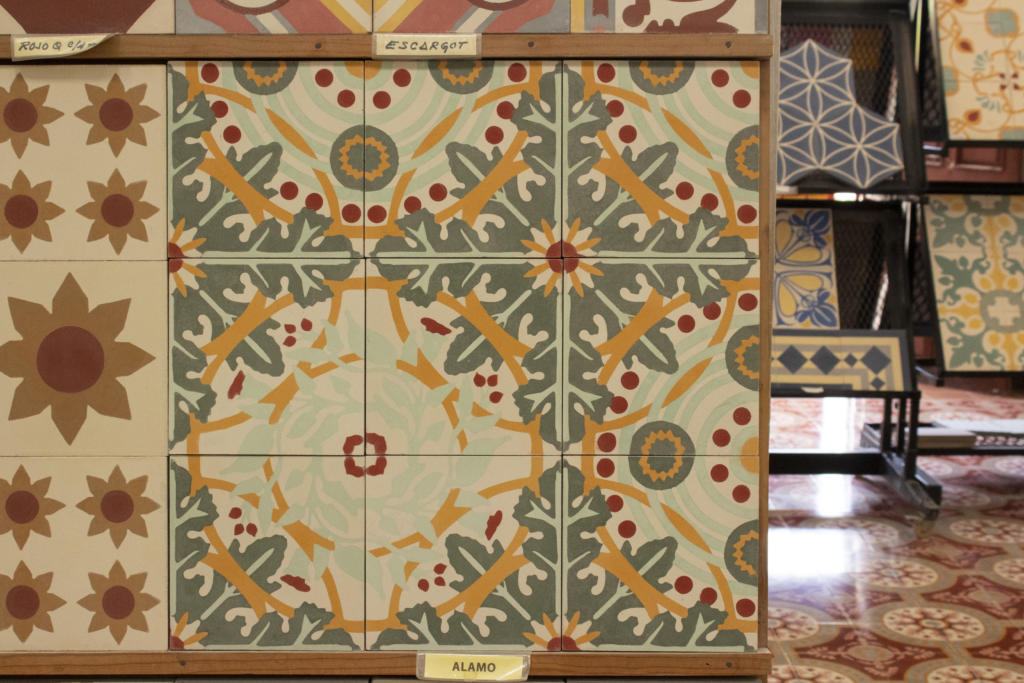
Mosaics trace back to antiquity, where they were embellished with naturalistic patterns using marble stones, terracotta and other pieces of stone. But mosaics, as we know them today, came to be around 1850 in the cities of Paris and Barcelona. The latter brought them to Mexico with the Spanish conquest, where they became a staple of the new world style.
As a result of this cultural exchange, a booming mosaic industry was born in Yucatán, which saw the rise of many successful companies, including La Peninsular.
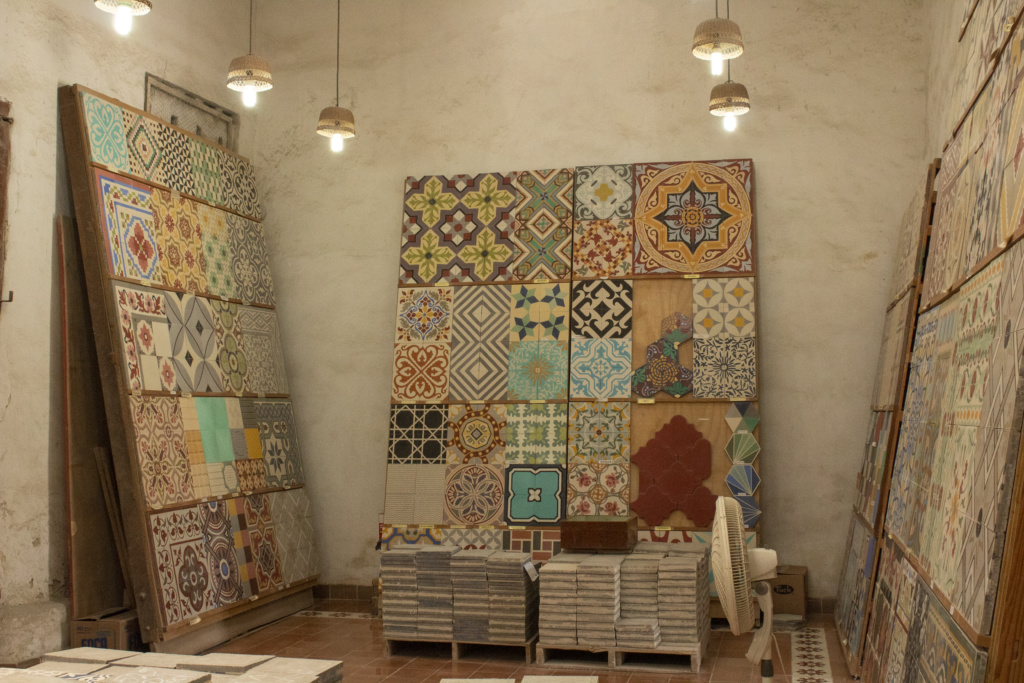
Around 1970, this local mosaic factory opened its doors in downtown Mérida. It enjoyed many successful years before the introduction of modern flooring into the state. Terrazzo, ceramics, and porcelain tile began to compete with traditional pasta floors.
Twenty years later, as mosaics fell out of style and companies disappeared, La Peninsular was bought by local businessman Ignacio Durán Encalada.
“I fell in love with the designs and the process,” says Ignacio. “When all the other companies started to go out of business, we were lucky enough to keep going. We are real survivors of those years.”
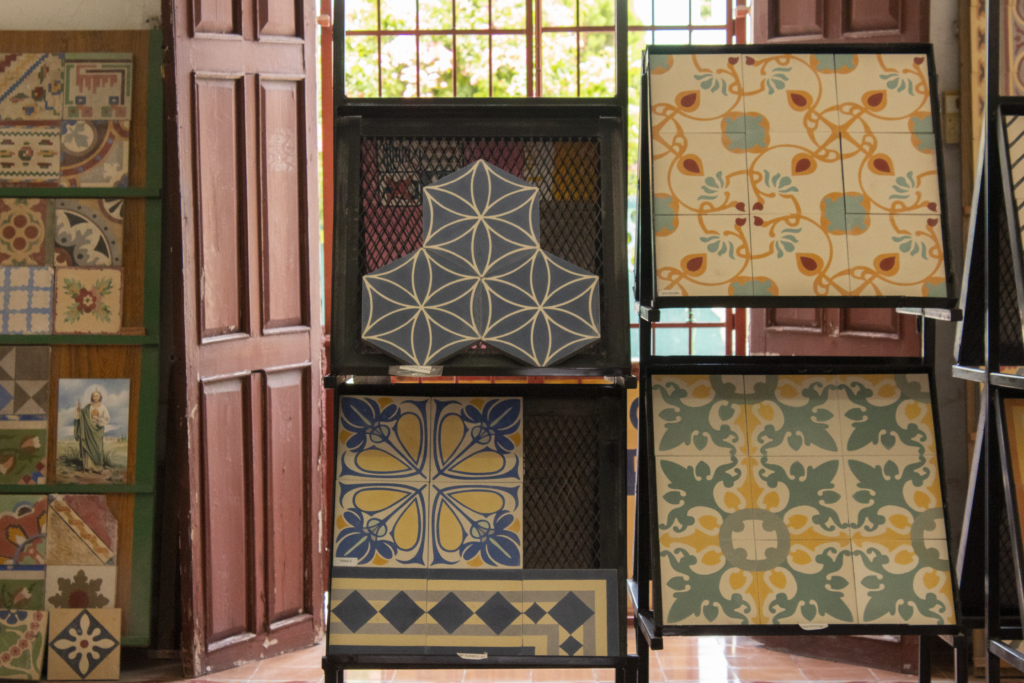
Ignacio notes that business was rough until the late nineties, when expats started arriving in Yucatán from the U.S. and Canada.
“They were interested in buying and remodeling classic colonial homes, and the tiles were a big part of what they were looking for,” remembers Ignacio. “Pasta tiles are very different from ceramic styles in North America, so the unique style really appeals to foreign buyers.”
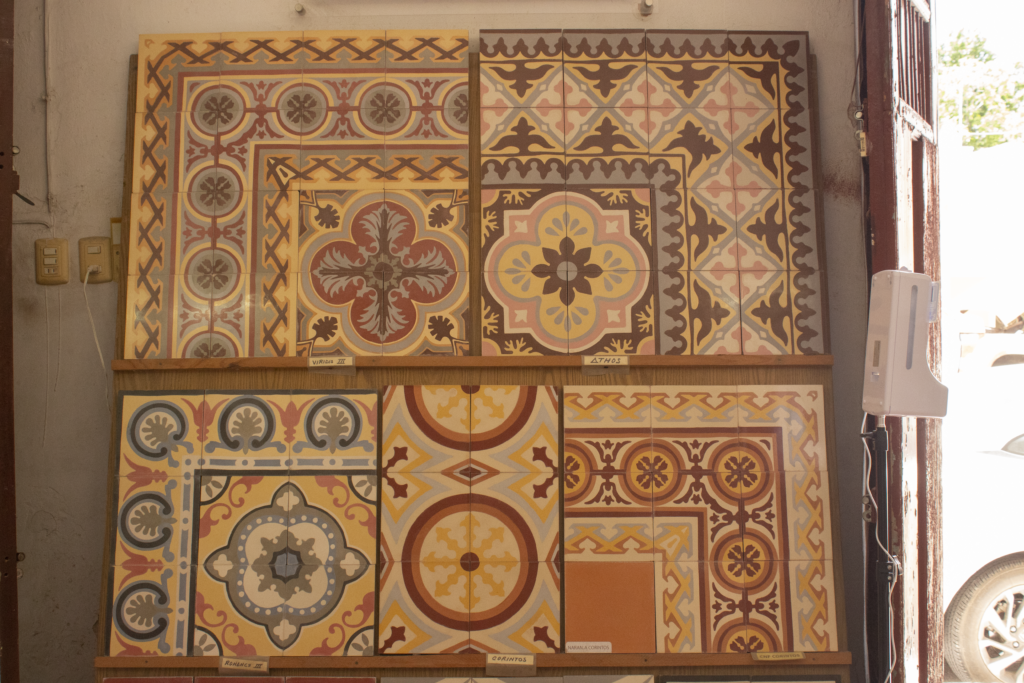
La Peninsular mosaics come in a wide range. Many of their designs are replicas of older designs.
“Some of our customers choose to bring in a design of their own and allow us to add them to our repertoire. But of course there are some who are rather more jealous of their creation.”
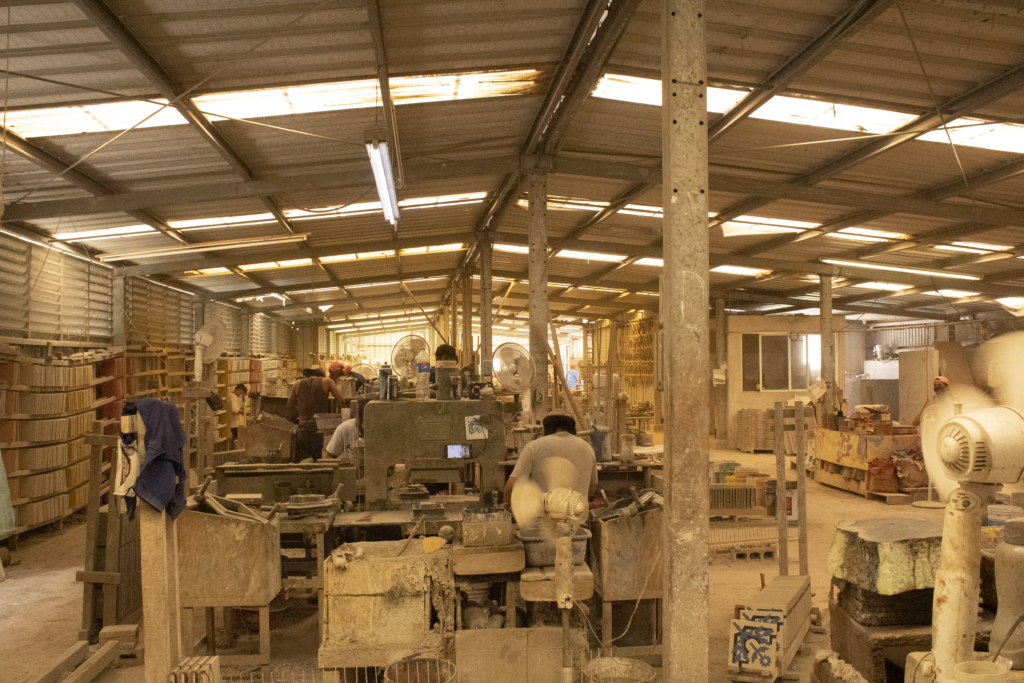
Though there are over 100 designs to choose from, Ignacio says there is no single design that could work for everybody.
“Every person that visits finds a personal favorite,” he says. “I could never choose. Though I do have a few personal favorites.”
Ignacio tells us that the process by which they produce their tiles is artisanal.
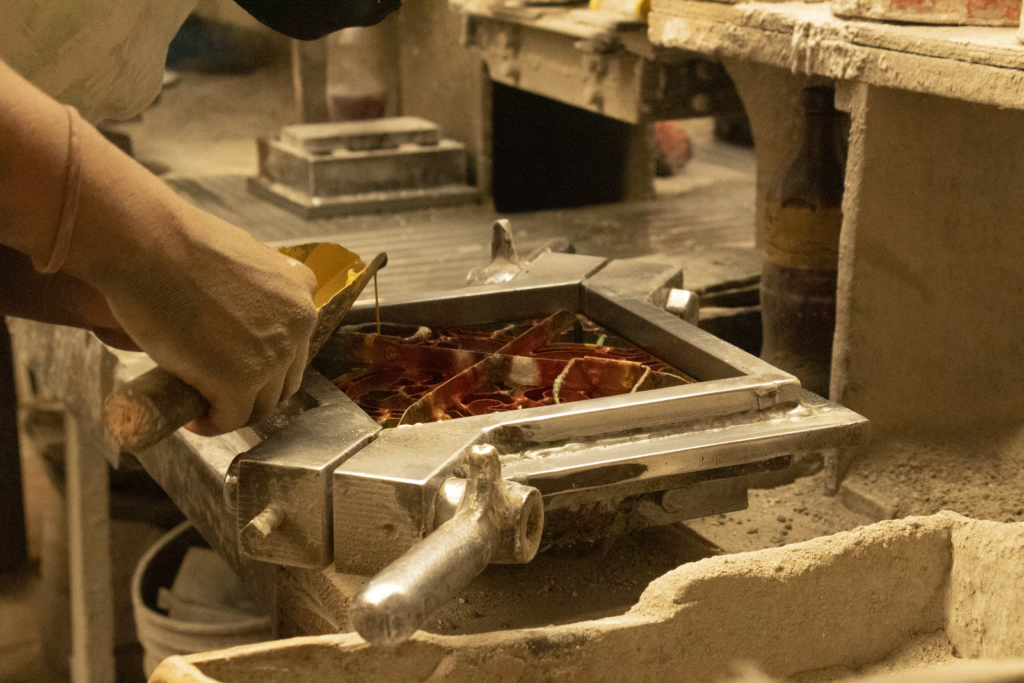
“The machines are only used to press the tile. Nowadays we use an electric press, which is quite different from the hydraulic process which used to be used. But the pouring, filling, and finishings are all done by hand.”
La Peninsular mosaics come in all sorts of shapes, designs and colors – some of which utilize up to 11 different tones or hues.
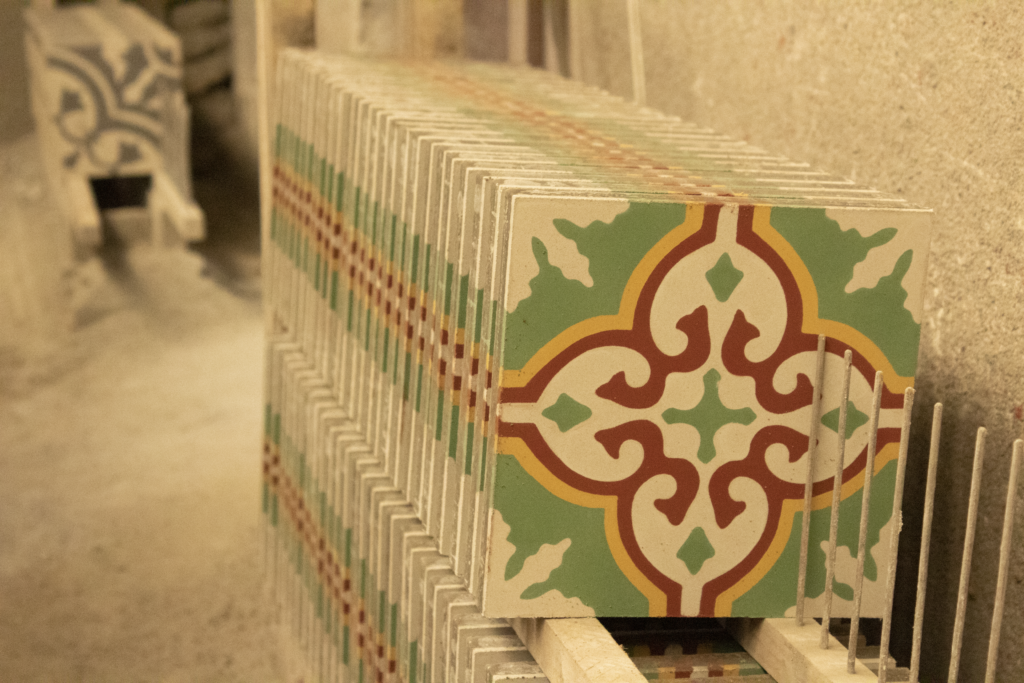
“Many walk-ins are shocked by the level of detail in our designs, and how complex our patterns can be. Not many shops are willing to put in the time and work that these elaborate designs require, but these are some of our all-time favorites.”
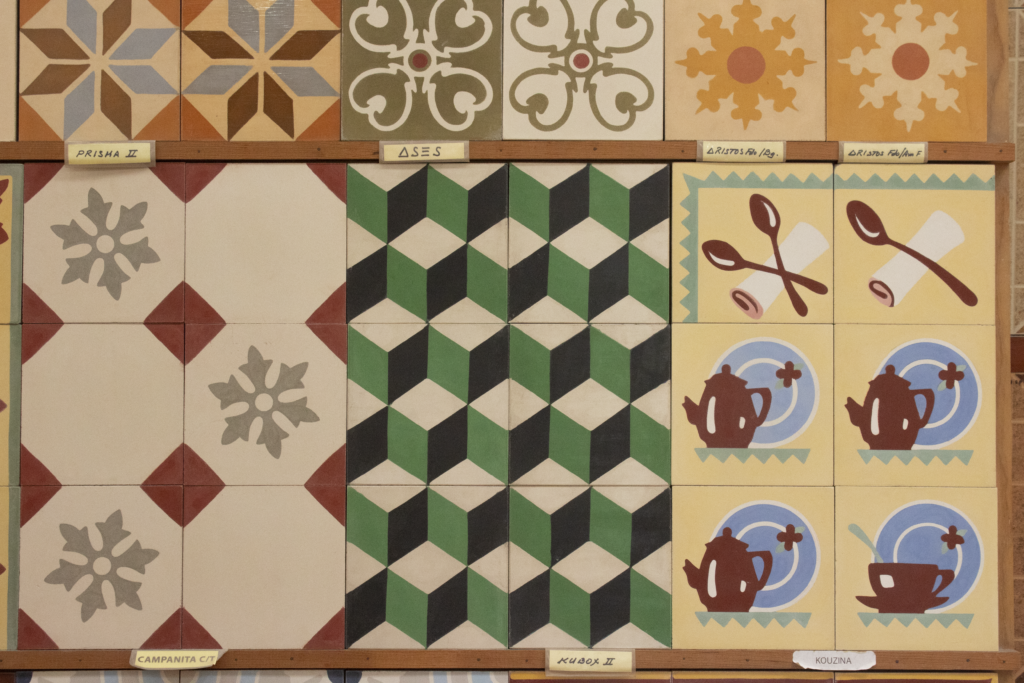
Ignacio lays out a map and points out the dozens of international locations where his tiles have found new homes.
“Our floors are walked over all around the world. Belice, Panama, Puerto Rico, Germany, the U.S., and Canada are just some of the countries we have reached so far.”
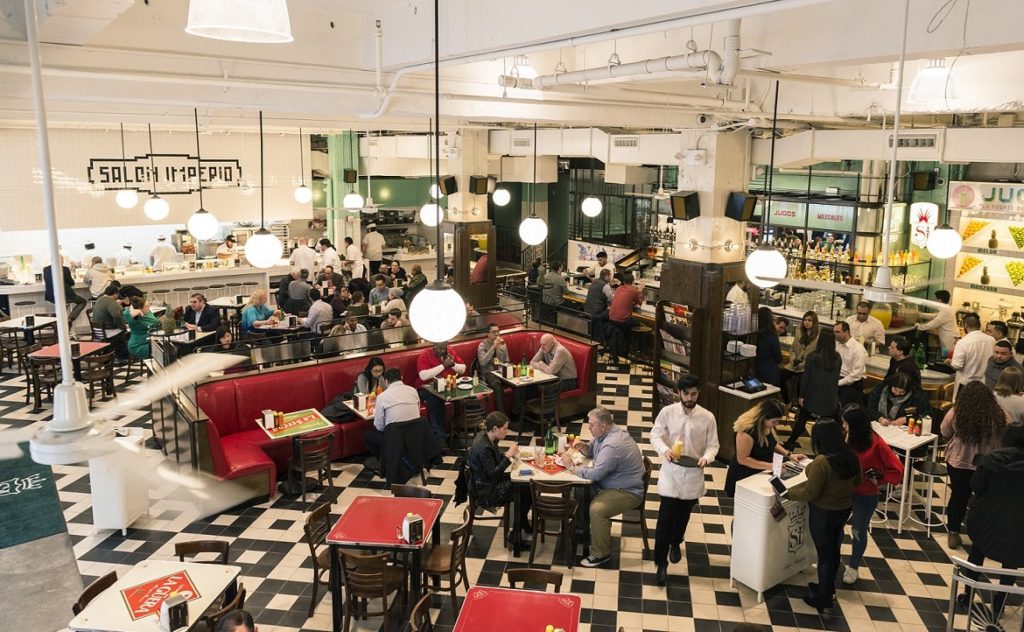
La Peninsular tiles bring a touch of Yucatán to famous locals such as the Nickelodeon Hotel in Panama and the iconic Empire State building in New York City.
“To us, it is a testimony of how sought after our work has become. We’re proud to represent our state around the world with something so beautiful.”
Visit La Peninsular on Calle 62 No. 619 or Contact Ignacio at 999-997-8367.









